- Home
- Fay Weldon
After the Peace Page 2
After the Peace Read online
Page 2
And he was right. It was only the once.
The Other Man
The young Viscount Sebastian had been, as he eventually confessed, wildly intoxicated at the time of that one notable youthful ejaculation – there were to be thousands more in his lifetime, no doubt – but this was the first to bear fruit, and so was eventually to attract the concern of the Law Lords.
His Lordship was in love and on his uppers and extremely drunk – never a good combination – when he and his Bullingdon Club friends, having lost everything in their wallets gambling at the Clermont in Berkeley Square, were escorting their friend Monty back to his home in Regent’s Park and happened to pass by the Your Beautiful Baby Clinic. Deposited sperm being still unattributable, trade was booming at the ‘bank’, which offered an all-night service. The young Sebastian, realising he could make £25 to pay for his taxi fare home to Belgrave Square, or even further, stepped inside. The chap in a white coat inside the open door made the quick assessment of appearance, race and temperament that was later to feature in the YBBC brochure, and guided him to a cubicle, handing over a selection of pornographic magazines. They were tame enough compared to today’s porn sites, but more than sufficient for the comparatively innocent yet randy young Viscount. In and out within fifteen minutes. When he left a queue was already forming outside.
‘It was a medical emergency,’ Sebastian argued to his friends as they went on to Regent’s Park. ‘A necessity. Abstinence is bad for a young man’s health, everyone knows. No-one else seems to value what I can offer. The lovely Veronica spurns it. Let the bank have it. Oh the spinning, the spilling, the spurning, the spurting of the spunk!’
At the time the Viscount was given to fantastical phrasing and fancied himself something of a belle-lettrist. Forty or so years later Monty was to quote this ‘spilling, spurning, spurting spunk’ to the judge in what became vulgarly known as the Dilberne Spillage Case, and caused great merriment in the land.
Sebastian was indeed being cruelly spurned by the Hon. Veronica Venice, a nineteen-year-old upper-class waif, who valued her virginity very much, not without reason. The upper classes have been breeding dogs, horses, wives and daughters for generations and know well enough that once a female of any species ‘gets out’ and procreates, it never afterwards reliably ‘breeds true’. Nor do today’s genetic scientists laugh the notion out of court; mitochondria in the womb lining do tend to linger and drift from receiving womb to receiving womb, via the phallus.
Only recently have our own royal family allowed non-virgins into the bloodline, and even back in the late eighties several of the nobility still saw an immaculate bride as the safer choice. Veronica was not aiming directly for royalty – there were few available at the time – but a peerage is always nice. Who is to say what goes on in the head of a girl keen on self-advancement?
But really Sebastian should have known better.
A Tricky Inheritance
On the good side, the bloodline of the lords and ladies of the Dilberne family does not date back to the age of the robber barons, but only to an artist-craftsman of Tudor times. It was in 1532 that one Hugh Hedleigh, master draper and Alderman of the City of London, became the first Earl of Dilberne and Montewan, for providing the monarch Henry VIII with six gold buttons decorated with blue enamelled hearts, together with the words Amor Vincit Omnia – love conquers all – to be worn at the King’s ill-fated wedding to Anne Boleyn. Ill-fated for Anne, at least.
The coat of arms of the Dilbernes became an escutcheon with a laurel wreath around a lion rampant, a rose surrounded by a heart and a family motto, Amor Vincit Omnia – though it should have become obvious through the centuries that love, far from conquering all, simply causes a great deal of trouble. Through the centuries the Lords of Dilberne turned out to be a romantic and impulsive lot. They often married for love, and a lot of good it did them.
‘Love is all’, we used to blithely sing when young, only little by little coming to understand as so many Millennials do that in the end money, not love, is everything. Not amor vincit omnia so much as pecunia vincit amor.
And then Sebastian comes along towards the end of the twentieth century and can hardly be expected to resist the tendency to folly in his own inheritance. He is prone to impulsive gestures not just by temperament but by breeding. He should have borne his torment in patience. His seed was valuable: it carried with it status and possessions; he should have guarded it better for a suitable future destination, and not acted as if the Your Beautiful Baby Clinic was Onan’s sister-in-law. At least he could, like Onan, have spilled it on the ground and thrown it away. Genesis 38:9: ‘he spilled it on the ground, lest that he should give seed to his brother.’
The legal and personal ramifications that might possibly ensue were far from his Lordship’s mind. Sperm donation might have been technically anonymous but it was not going to be so difficult for his daughter to discover from whose loins she came and play it to her advantage.
Sebastian was born on June 27th. I, Gwinny, of course, have ‘done’ his star chart. The aristocracy may be richer and snootier than the rest of us, but they are as predisposed as the rest of us to the various blessings and calamities the stars preordain. So perhaps Sebastian is to be forgiven. It’s just that Rozzie never would, never could, forgive. Being born with her sun in Capricorn, and her moon in Taurus in the ascendant, she was all too likely to bear grudges.
The Moving Finger
Anyhow, there I was in March 1999 adding to family number by means of a turkey baster, Xandra on the bed with her navy polka-dotted skirt pulled up and rumpled and her legs apart, with Clive shielding his eyes in exaggerated horror as he watched. The turkey baster did glug rather ominously as I plunged in the very essence of what we later found out to be Sebastian. A turkey baster – in case you don’t know – is a large plastic syringe which sucks up the juices in the pan in which a turkey is roasting and squirts it back over the breast to stop the skin drying out, so the bird emerges from the oven golden and splendid. Rather like Rozzie herself, come to think of it. She was the most beautiful baby.
But what was done on that day, was done. Too late to worry. As Xandra (born Sandra) closed her legs Clive quoted from FitzGerald’s 1859 translation of The Rubaiyat of Omar Khayyam from 1100: The moving finger writes, And having writ, Moves on: nor all thy piety and wit Shall lure it back to cancel half a line, Nor all thy tears wash out a word of it.
Clive was a constant quoter. We all were, we pre-Millennials. We looked to the past for comfort and perhaps a little poetic wisdom to help us on our way. Millennials hardly ever quote: they seem to be in denial of anything pre-computer age, and look askance at us crumblies when we do it. They never learn anything ‘by heart’, as we used to call it. Perhaps they don’t have hearts in the way we did? They’ll burst into song, though, relying on a common current resonance, a common current understanding, just not old literature. Too elitist. Little girls will sing about letting it go, letting it go, turning away and slamming the door, because that’s so now, but poetry is somehow suspect, an attempt to drag the young into the dusty, dangerous, privileged past.
And I must say even back then Clive’s particular quoting habit could annoy. It felt over-theatrical – it wasn’t as if we were at all sure the thawed stuff would work; it had been in the freezer for so long – and then he’d hidden his eyes and left the actual doing to me. He claimed the drama: he took the credit: I did the work. But what can you expect from an actor?
In the same way as my mother’s generation used to quote the Rubaiyat for consolation, Khalil Gibran’s The Prophet seemed to work for the next, all of us seeking Sufic wisdom from far away and long ago. As similar comfort-prose, I won’t say banality, once Rozzie was born Clive became very fond of a particular quote from Gibran: You are the bows from which your children as living arrows are sent forth. He knew well enough that Rozzie wasn’t his flesh and blood, but he was happiest in denial, preferring fiction to fact. Well, he’s not the only one.
Both fathers, the legal one Clive and the birth one Sebastian, came to adore Rozzie, even though the emotion was not necessarily returned. She was, as Millennials might say, a touch Aspergery.
My darlings, you give but little when you give of your possessions. It is when you give of yourself that you truly give was another of the annoying Gibran quotes on which Clive was so keen. He would say it (indulgently, so we couldn’t take offence) when leaving me or Xandra to pick up the tab at pub or restaurant. Had Clive not graced us with his presence, his beauty? Was not that worth more than vile money? He was almost pathologically stingy, as we see in the fact that even the sperm Xandra used was half price, being old stock.
He was lavish with words of love, but seldom with immediate cash. When it came to it, when paternal concern changed to a need for paternal activity he suffered from the same reluctance. He would rather watch the game on TV than get up and collect Rozzie from school. Too often that was left to me.
‘Miss Rhyss, can you come round now and collect Rozzie? The father’s not turned up and his phone seems to be off the hook.’ And off I’d go, a signed-up and authorised proxy carer to collect pretty, charming, bright little Rozzie – gentle and sweet, an apparent child prodigy who in those days seldom cried and never complained.
Xandra was too busy at her life-and-death job up at the hospital for anyone to even think of trying to contact her. Besides, after the Millennium the hospital switchboard was always too busy to respond and mobiles had to be turned off near sensitive electronic equipment.
If one ever reproached Clive for not turning up when he said he would, he’d turn again to Gibran, always to me quite a puzzle: ‘Yet the timeless in you is aware of life’s timelessness, and knows that yesterday is but today’s memory and tomorrow is today’s dream.’
I suppose nothing really changes as the generations try to justify themselves by fine words. In the same way that pert-bosomed Millennials now defend themselves, putting their trust in MeToo hashtags rather than the wordy philosophical ramblings of Eastern sages.
Oh, the guilt! How the past has caught up with us. How little we did to control the future. I should have stilled the moving finger that wrote while there was time, listened to my own misgivings. Xandra should not have been thrown by the thought of her relentless biological clock. Clive should have faced up to the fact that Rozzie was not his own, not preferred to be an adoring bad parent than not the parent at all, and should somehow have contained his own panicky meanness with money, time and affection. Should, should, should. Nor was I without fault.
Ovid got it right, way back when BC turned into AD: Video meliora proboque, deteriora sequor. I see the better way, and approve, but follow the worse. Whatever changed?
A Matter Of Inheritance
This new science of genetics, feeding scraps of the frozen seed of the past into the present, must have caused quite a stir in the Bardo Thodol. This is the realm where, according to the Tibetan Book of the Dead, the souls of the unborn linger, waiting to choose their parentage. (Thus eventually, the belief was, that over a few million years, the scales of right and wrong would balance and a state of natural justice be achieved.) Sebastian, in his later years a member of the Buddhist Learning Centre, once told me he assumed Rozzie was the spirit of his great-great-grandmother Adela returned to bring about the fall of the House of Dilberne. But that, I imagine, was his guilt speaking. He should not have done what he did. Rozzie was his karma, not only for what he had done but for twelve generations of the Dilberne family working through him. She was the karma of all of us.
Not In Our Stars But In Ourselves
Of course it’s Gwinny (that’s me) telling this tale: not some omniscient narrator. She just puts herself into the third person from time to time to get a more objective view of what went on; to at least attempt to see things from others’ points of view, and so maintain impartiality and not put herself in as too much of a heroine. When writing in the first person it’s all ‘me, me, me’ so one tends to absolve oneself from blame, while owing it to one’s craft not to do so. Slips into partiality are all too easy. But here I am in the third person, speaking truth to power, in this case the narrator.
Let me warn you about Gwinny. She’s something of a nutter. She will offer up the pattern of certain planets when people are born as an explanation of their personalities and habits. Instead of just describing the sperm-born Rozzie as having a paranoid personality disorder she will claim that the child’s sun and moon are in a difficult relationship with one another due to the time of day and place where she was born – ‘sun in Capricorn, moon in Taurus!’ Which is obviously nutty and annoying to sensible people, though odd how so many use such metaphors in casual conversation:. ‘What star sign are you? A Leo? I’m a Virgo so we’re bound to get on!’ or ‘Everything’s going wrong, Mercury’s gone retrograde yet again!’ and so forth.
Gwinny has been told that, evidenced by her strange beliefs, she suffers from a defensive paranoid personality disorder cluster complicated by a distorted thinking pattern. Which is why she’ll believe in anything: not just astrology, but karma, telepathy, telekinesis, pricking of her thumbs and warnings from ‘the other side’ and even use Quantum theory – nothing has to be what it seems – to justify herself. She goes to fortune tellers. She drifts from one belief system to another in her ‘search for answers’. If it’s not the Welsh Catholic Christianity where she began, it’s Buddhism and the Tibetan Book of the Dead and a kind of diffused animism in which karma plays a large part, and then eventually Hellenism – worship of lots of gods not just one, thus spreading her bets: polytheism not monotheism, however much the latter is supposed to have advanced human civilisation.
Gwinny is fairly sure the Olympian Gods still move amongst us (she once encountered Apollo as the sun rose over Primrose Hill) often taking the form of our present-day celebrities in their louche attempts to further their sexual designs. Weinstein might be Zeus for all we know, ravishing Europa in the form of a bull, the better to conceive King Minos. David Icke might be Boreas, God of the cold North Wind, dismissing politicians as lizard forms, their tongues spitting poison. It’s all a matter of metaphor.
And perhaps it was the Greek Goddess Flora who possessed me on that day in 1999 when Xandra and Clive implored me, ‘Oh go on, Gwinny. You choose. You’re so lucky!’ – as we all three studied the instruction booklet the day the frozen sperm arrived in its cold pack through the letterbox. The original brochure, by the way, had been ever so well designed but they’d taken no trouble at all with this booklet. It was twelve badly printed pages, cheaply produced and hastily written. Why bother, I suppose, once they’d taken the money?
It was observably true I was lucky, most noticeably when it came to parking spaces: ‘Hail Mary, full of grace,’ I’d cross my fingers and mutter, ‘let me find a parking space’ – and lo! There would be one. That always impressed Xandra and Clive.
So it was that I, Gwinny Rhyss, of 23 Standard Road, NW5, the little terraced house where I’d been born, for thirteen years neighbour and witness to the life of the Smithsons next door at No. 24 – was to press the plunger and thus cause the soul of Rozzie to slip from the plane of the Bardo Thodol and into this alarming world of ours. Mind you, it was high time. Since the very day they’d moved in, since the day I’d guaranteed their mortgage, since the fabulous floral wedding (I paid for the flowers) on Hampstead Heath, the Smithson couple had been trying to become a family, not just a young couple. I could hear them next door trying; the walls were thin.
Between The Notion And The Act Came The Wedding
My hope is that the reader will overlook Gwinny’s occasional descent into schizotypal personality disorder, with a hint of paranoia, and see her as a troubled friend in need of help rather than an annoyance. Gwinny is the only narrator available who knows or can imagine the totality of this rather startling story about sperm banks, the druggy life, the guilt of the past and the revenge of the Millennials. And how, in some detail, an
d as the result of influences dating back some sixty years, Rozzie came to be born, one foot in the twentieth century, the other in the twenty-first.
Yet with what high hopes did Gwinny not embrace the Clive Smithson/Xandra Barker retro flower-power wedding in the June of 1986? Clive was twenty-three and Xandra twenty-six. High time to join the knot.
Much of the couple’s twenties had slipped away in an acid and marijuana haze. Clive and Xandra had met when he was at drama school and she was studying to be a doctor, had been together for several visionary, rave-filled years, and let it be known that they were still tremendously in love. With this wedding they had declared their rejection of all that was past, a determination to live in newness of life in the next stage of their existence, drug-free, punk-piercing free, and finally settle down – boringly square though that might seem to some – to be adults and raise a family. Time, both agreed, to finally grow up. Clive was desperate to be fruitful and multiply, fill the earth and subdue it; and Xandra too, or so she said.
So much they publicly declared, even having a carpenter carve their resolve in antique rural script (rather ugly, as it turned out) onto a wooden board, to hang up by a nail on an old oak tree during the wedding party they planned for the first Midsummer’s Day after they owned their own house. And now thanks to the nice lady next door at No. 23, they had it. A home of their own ready to move into at 24 Standard Road, NW5.
Not grand by NW3 reckoning or even NW1. NW3 had the heath and the wealth; Primrose Hill, NW1, just down the road, had a rare green space with trees, a children’s sandpit and lots of artists, and was more exciting. Standard Road, NW5, a short brick terrace built by Victorian speculators for railway workers, was very much a poor relation. But for the Smithsons it was a start. And they’d have a Lady Gwyneth Petrie next door to add class, in other words Gwinny, the artist next door, who was rich enough to help them with their mortgage, and when the time came, help turn their fabulous flowery dream wedding into reality.

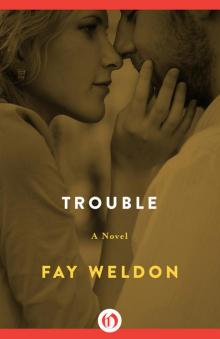 Trouble
Trouble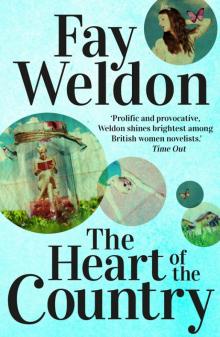 The Heart of the Country
The Heart of the Country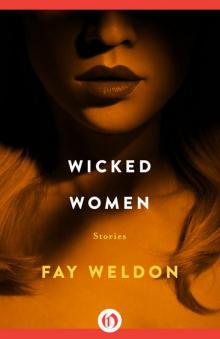 Wicked Women
Wicked Women Mischief
Mischief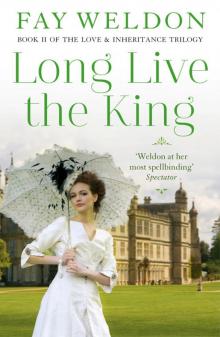 Long Live the King
Long Live the King Remember Me
Remember Me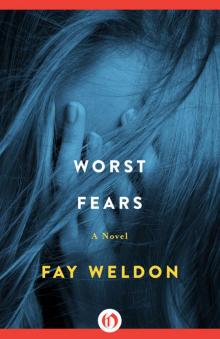 Worst Fears
Worst Fears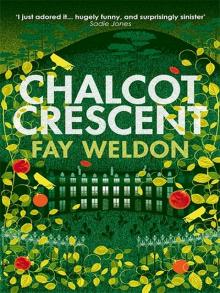 Chalcot Crescent
Chalcot Crescent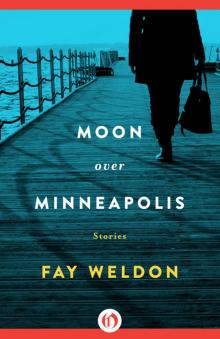 Moon Over Minneapolis
Moon Over Minneapolis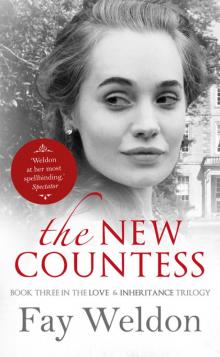 The New Countess
The New Countess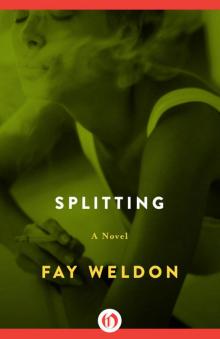 Splitting
Splitting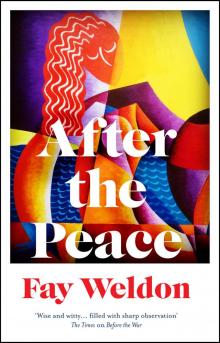 After the Peace
After the Peace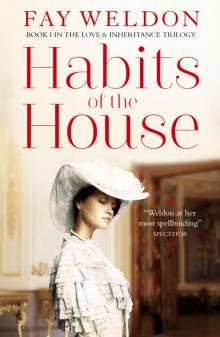 Habits of the House
Habits of the House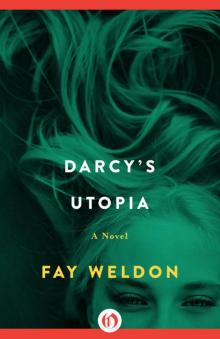 Darcy's Utopia
Darcy's Utopia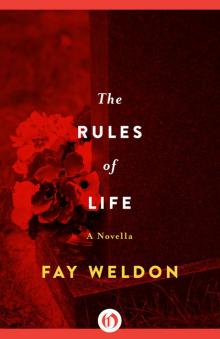 The Rules of Life
The Rules of Life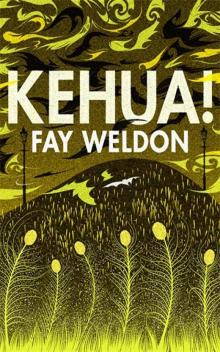 Kehua!
Kehua!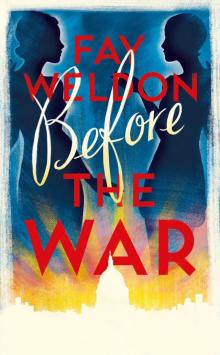 Before the War
Before the War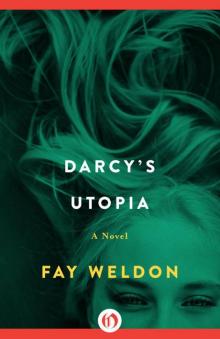 Darcy's Utopia: A Novel
Darcy's Utopia: A Novel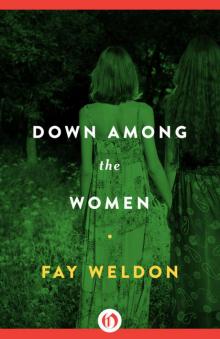 Down Among the Women
Down Among the Women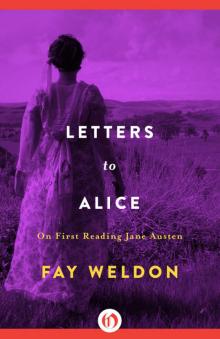 Letters to Alice
Letters to Alice 3 Great Historical Novels
3 Great Historical Novels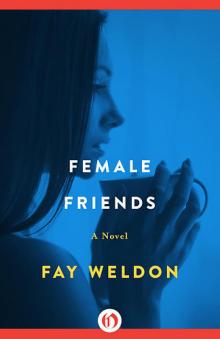 Female Friends
Female Friends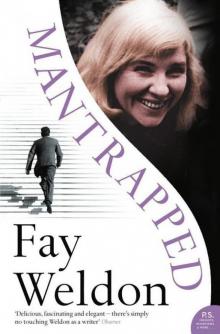 Mantrapped
Mantrapped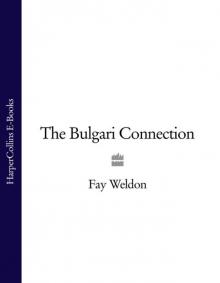 The Bulgari Connection
The Bulgari Connection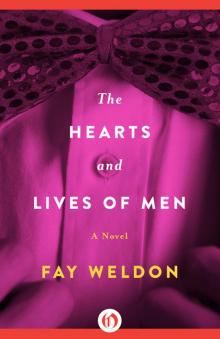 The Hearts and Lives of Men
The Hearts and Lives of Men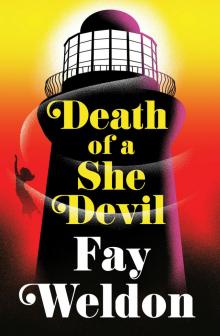 Death of a She Devil
Death of a She Devil